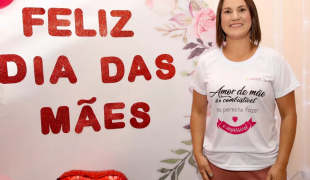- 7177
- 489
- 8
- 9
- 0
- Help Ukraine
About the solution
Carol’s husband, Irwing, was diagnosed with Parkinson's disease in 2006 and with dementia in 2009. He played the saxophone and piano throughout his life.
Things got more difficult for the couple when, in 2014, Irwin started to not respond well to the medication. However, at the time, he got back to playing the piano (for the first time since he had been diagnosed). From that day, he seemed more aware, responsive, energetic and communicative.
"I was at my wit's end, and finally something positive happened. The music actually resurrected him”, Carol noted.
When she told the doctor about this, she was told that “playing the piano caused him to release dopamine and that was giving him the lift”. This made the wife realise that music was more effective than the meds.
So, in 2014, Carol started a band: The 5th Dementia. This band helps Irwin and other people who have neurodegenerative diseases coping with their conditions with music.
That band led Carol to found Music Mends Minds, a nonprofit organisation that aims to help people who struggle with Alzheimer’s disease, dementia, Parkinson’s disease, traumatic brain injury, stroke, and post-traumatic stress disorder. Music Mends Minds has created 20 bands across the country that have improved the quality of life for more than 200 people.
“It didn't take long before I recognized that we were on to something really grand. So, Music Mends Minds was born. We're in the business of creating bands in different cities where we can find people with neurodegenerative diseases who love to play music and are ready to jump on and have a good time. Bands practice once or twice a week. (It's) a safe zone for patients, for caregivers, for family members and for the entire public to come to a rehearsal and feel the magic of music and change their moods. Everybody is high on life after a rehearsal. We also organize concerts a couple of times a year for all the bands. The concerts bring great pride to our musicians and singers and offers them an opportunity to shine again. We're jamming all over the country. We've reached patients that were lost and lived without music and then we introduced them to the magic of music, and they, in turn, came alive and have an extension on life”, the founder described.
Adapted from: https://cnn.it/2FD9e2M
More info: https://www.musicmendsminds.org/
This solution shall not include mention to the use of drugs, chemicals or biologicals (including food); invasive devices; offensive, commercial or inherently dangerous content. This solution was not medically validated. Proceed with caution! If you have any doubts, please consult with a health professional.
DISCLAIMER: This story was written by someone who is not the author of the solution, therefore please be advised that, although it was written with the utmost respect for the innovation and the innovator, there can be some incorrect statements. If you find any errors please contact the patient Innovation team via info@patient-innovation.com
-
-
390
-
0
-
4159

After losing son to rare disease, woman creates project to help mothers with children with special needs
CAREGIVING
COMMUNICATION: Communicating, whether by speaking, listening, or other means
Social interaction
Neuromuscular Disorders
Strategy/Tip
Social Media
Tremors
Muscle cramps or spasms
Stiffness or rigidity (difficulty moving)
Paralysis of the legs and lower body
Muscle weakness
Loss of balance
Trouble with fine motor skills (e.g., writing, buttoning clothes)
Numbness or tingling in the extremities
Twitching or involuntary movements (myoclonus)
Seizures
Enhancing health literacy
Building Supportive Community Relationships
Promoting inclusivity and social integration
Enhancing Mental Health
Preventing (Vaccination, Protection, Falls, Research/Mapping)
Raise awareness
Caregiving Support
General and Family Medicine
Neurology
Pediatrics
Psychiatry
Brazil
-
-
-
544
-
0
-
8832

Student invents "epilepsy alarm" for his grandmother
CAREGIVING
COMMUNICATION: Communicating, whether by speaking, listening, or other means
Epilepsy
App (Including when connected with wearable)
Muscle cramps or spasms
Stiffness or rigidity (difficulty moving)
Loss of balance
Sleep disturbances
Anxiety
Twitching or involuntary movements (myoclonus)
Seizures
Managing Neurological Disorders
Enhancing Mental Health
To improve Treatment/Therapy
Preventing (Vaccination, Protection, Falls, Research/Mapping)
Caregiving Support
General and Family Medicine
Neurology
Psychiatry
Public Health
China
-
-
-
546
-
0
-
7333

Man develops software to help his grandmother recover her memory
COMMUNICATION: Communicating, whether by speaking, listening, or other means
CAREGIVING
Brain Stroke
Alzheimer's Disease
Dementia (Alcoholic Dementia, Vascular Dementia)
Website
Treatment/Surgical device
Difficulty concentrating or making decisions
Difficulty coordinating movements
Paralysis of the legs and lower body
Trouble with fine motor skills (e.g., writing, buttoning clothes)
Cognitive impairment
Memory loss
Dizziness or lightheadedness
Fainting or loss of consciousness
Enhancing Mental Health
To improve Treatment/Therapy
Caregiving Support
Intensive Care Medicine
Neurology
Physical Medicine and Rehabilitation
Psychiatry
United States
-
 en
en